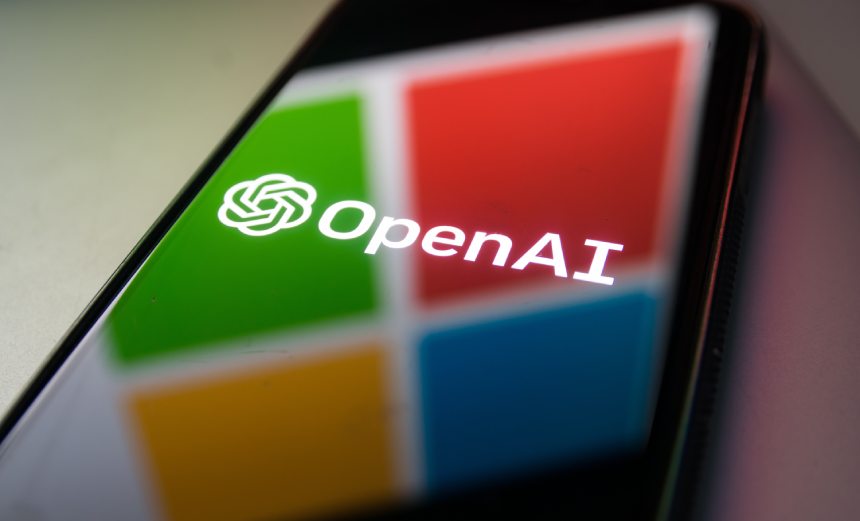In a funding round that valued OpenAI at $157 billion post-money, the startup disclosed that it had raised $6.6 billion
The new funding, which previous investor Thrive Capital led, increases OpenAI’s total raised to $17.9 billion, according to Crunchbase.
According to The New York Times, Thrive has invested approximately $1.3 billion, with an exclusive option to invest an additional $1 billion at the same valuation until 2025. The fundraising included Microsoft, Nvidia, SoftBank, Khosla Ventures, Altimeter Capital, Fidelity, and MGX.
The Wall Street Journal reports that Microsoft invested less than $1 billion, Nvidia pledged $100 million, and SoftBank put in $500 million.
The company stated in a blog post that the new funding will enable it to “double down on our leadership in frontier AI research, increase compute capacity, and continue building tools that help people solve hard problems.”
“We appreciate our investors’ confidence in us and are eager to collaborate with our partners, developers, and the broader community to create an AI-powered ecosystem and future beneficial to all involved.”
Unusual strings may be affixed, and the Financial Times reported this morning that OpenAI requested that investors refrain from supporting rival ventures, including xAI and Anthropic. We have contacted the organization to obtain additional information and will revise this post as soon as we receive a response.
OpenAI was already the most well-funded AI venture in the world. However, this new tranche is so substantial that it places the San Francisco-based company in a league of its own.
Elon Musk’s AI venture, the xAI above, raised more than $6 billion earlier this year.
However, its valuation was eclipsed by OpenAI’s ($24 billion post-money). The capital war chests of high-profile AI ventures Cohere and Mistral are hovering around $1 billion.
In comparison, chief OpenAI rival Anthropic has secured just over half of OpenAI’s total ($9.7 billion) since its inception.
Therefore, why did OpenAI need an amount exceeding the Zimbabwean government’s spending in 2021? Quite simply, to maintain its extensive operations.
OpenAI is reportedly investing billions in training and producing its AI systems, including the recently introduced o1, and recruiting highly sought-after data science talent to remain competitive.
OpenAI has allocated approximately $7 billion for model training and $1.5 billion for personnel, as reported by The Information.
(OpenAI CEO Sam Altman has stated that training one of the company’s older leading models, GPT-4, costs more than $100 million.) ChatGPT reportedly cost OpenAI $700,000 per day to operate at one point in time.
OpenAIundisputed market leader in generative AI. OpenAI’s annual revenue has surpassed $3.4 billion, and ChatGPT has more than 250 million users, with approximately 10 million paying subscribers. The New York Times, citing internal OpenAI documents, reports that ChatGPT alone could generate $2.7 billion this year.
Microsoft, a close partner and investor in OpenAI (close to $14 billion in investment), has developed a comprehensive suite of productivity products constructed on top of OpenAI models. Apple is also incorporating ChatGPT into its Apple Intelligence lineup for AI technology.
OpenAI anticipates its revenue will surpass $100 billion by 2029, equivalent to Nestlé’s current annual sales. However, it is confronted with numerous competitors.
High-fidelity video generation models have been developed by startups such as Runway and Luma Labs, which have surpassed OpenAI in the market. (Sora, OpenAI’s proprietary video model, is anticipated to be released this autumn.)
Anthropic is currently in the process of developing an AI product suite that will compete with ChatGPT. xAI, Google, and Amazon are making substantial investments in infrastructure to train next-generation models capable of generating text and images.
Meta and Black Forest Labs are releasing open models to commoditize this technology.
Due to the competitive pressures, OpenAI may significantly increase the cost of its premium ChatGPT plan, ChatGPT Plus, from $20 per month to $44 per month by 2029. Additionally, the company may restructure its corporate structure to attract additional investments.
The for-profit division of OpenAI is regulated by a nonprofit organization that restricts investors’ returns. However, Altman purportedly indicated that OpenAI will transition from nonprofit governance within the next few months.
Reuters previously reported that the closure of the $6.6 billion round was contingent upon this and the possibility of Altman receiving equity.
Bloomberg reports that investors in the new round can recoup their investment if OpenAI fails to complete the transition from nonprofit to for-profit within two years.
By reducing its dependence on Nvidia, OpenAI could be free to investigate capital-intensive, long-term investments, such as AI chips and complete data centers, without being constrained by its ability to raise capital.
(OpenAI trains and operates numerous models on hardware manufactured by Nvidia.) It will also replenish the company’s finances to facilitate licensing agreements with data providers like Reddit and Condé Nast.
These agreements can potentially provide OpenAI with a competitive advantage while protecting it from intellectual property litigation.
The feasibility of its implementation remains uncertain. OpenAI has been shedding high-profile executives due to disagreements regarding the company’s direction.
In September, the chief technology officer (CTO), Mira Murati, the chief research officer, Bob McGrew, and the research vice president, Barret Zoph, submitted their resignations. Andrej Karpathy, a distinguished research scientist, departed from OpenAI in February.
Subsequently, Ilya Sutskever, the former chief scientist and co-founder of OpenAI, and Jan Leike, the former safety leader, resigned. John Schulman, the co-founder of OpenAI, declared his intention to depart the company in August. Additionally, the organization’s president, Greg Brockman, is on leave.

Only three of the thirteen individuals who contributed to opening OpenAI in 2015 remain.
